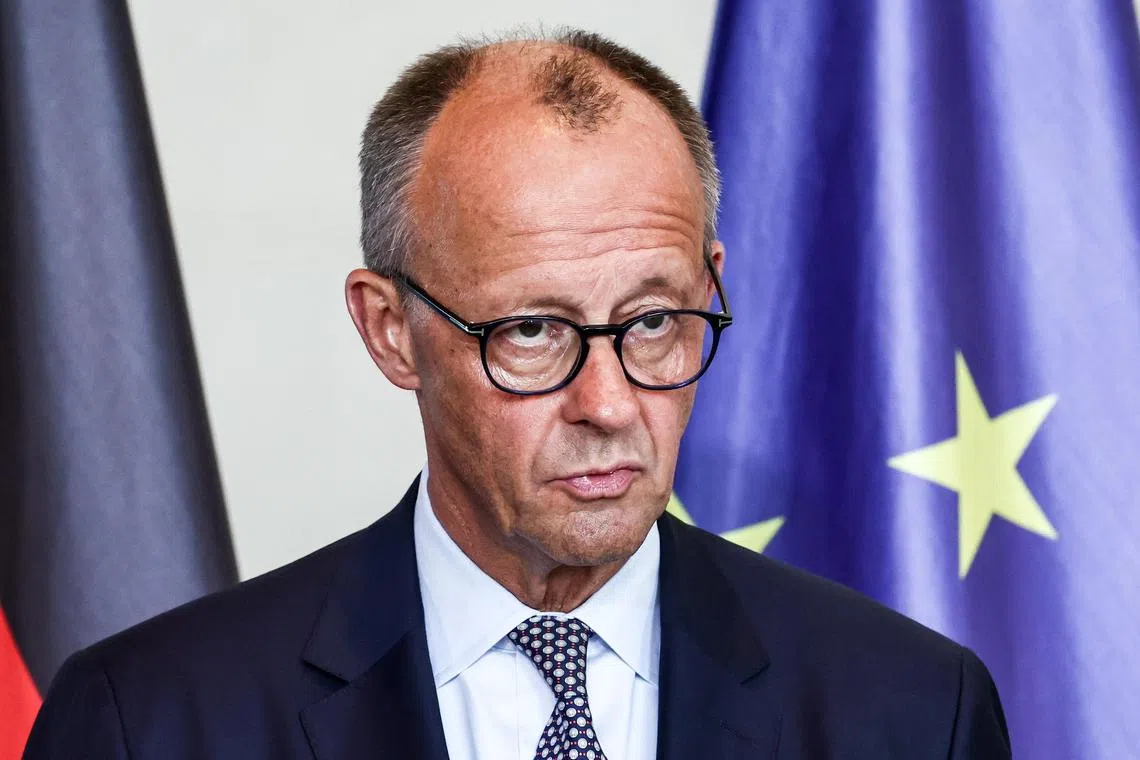Merz says tackling Germany’s economic woes tougher than expected
Sign up now: Get ST's newsletters delivered to your inbox

Chancellor Friedrich Merz said the US’ 15 per cent tariffs on German exports will be a burden on Germany's economy.
PHOTO: EPA
Follow topic:
German Chancellor Friedrich Merz said tackling the country’s economic challenges is proving to be a far greater undertaking than he initially anticipated.
“I say this also self-critically – this task is bigger than one or the other may have imagined a year ago,” Mr Merz said in a speech in the northern German town of Osnabruck on Aug 23. “We’re not just in a period of economic weakness, we are in a structural crisis of our economy.”
Europe’s industrial powerhouse and biggest exporter is struggling with persistently high energy costs in the wake of Russia’s invasion of Ukraine and the turmoil of US trade tariffs. Data published on Aug 22 showed the German economy contracted in the second quarter by more than initially estimated.
“By this week at the latest, no one should be under any illusions about how deep and far-reaching the challenges that face us are,” Mr Merz told members of his Christian Democratic Union party in Lower Saxony, the home state of carmaker Volkswagen.
He pointed to the 36 per cent slump in Volkswagen’s second-quarter earnings after tax as just “one of many messages”.
“Large parts of our economy are no longer truly competitive and that’s a question of price competitiveness,” Mr Merz said, without naming any firms. “The quality is still good and company leaders recognise these challenges. But the underlying conditions in Germany simply haven’t been good enough for the last decade.”
Since taking office in 2025, Mr Merz has pledged sweeping reforms aimed at cutting red tape, modernising infrastructure and stimulating domestic demand. His government plans hundreds of billions of euros in investments for roads, bridges and the armed forces to bolster productivity.
On Aug 23, he highlighted new tax incentives for business investment and reiterated his opposition to raising taxes for medium-sized companies.
He also acknowledged that the US’ 15 per cent tariffs on German exports will be a burden on the economy, although he cautioned that an outright trade war with Washington could have been far worse. BLOOMBERG

